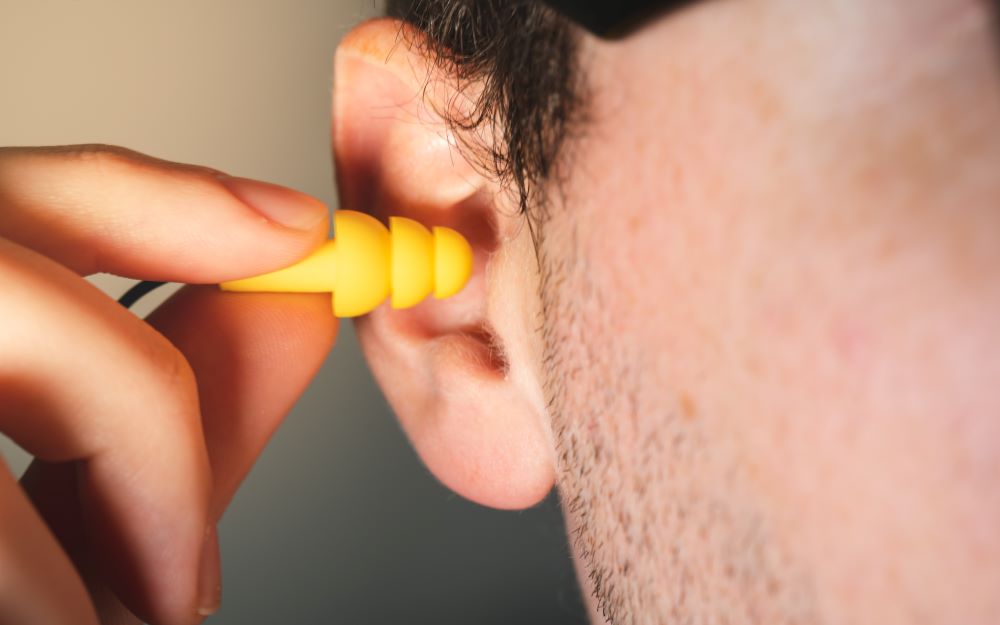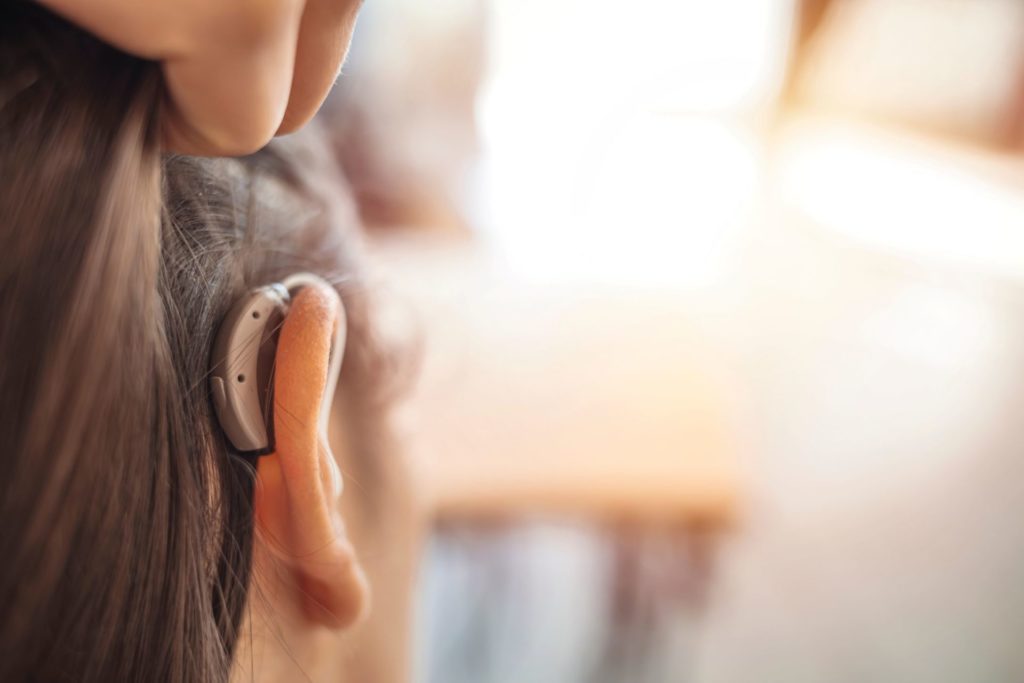Hearing is a sense that is often taken for granted; it enables us to communicate, learn about the world and enjoy the sounds around us. However, our hearing is fragile and can easily be damaged by excessive noise exposure making it essential to protect your hearing from harmful noise to prevent hearing loss which can significantly impact your quality of life.
26th April marks the 28th year of International Noise Awareness Day which aims to raise awareness of the harmful effects of noise on hearing, health and quality of life. To help raise awareness, we’re sharing our top tips on how to protect your hearing and why hearing protection is important; protecting your hearing at work and the laws, and common questions about hearing loss and protection.
What is noise-induced hearing loss?
Understanding what noise-induced hearing loss is can equip you with the knowledge and power to help prevent and avoid hearing loss caused by excessive exposure to noise. Put simply, noise-induced hearing loss (NIHL) is a type of hearing loss caused by exposure to loud sounds.
This can be either a sudden, brief exposure to a very loud sound or prolonged exposure to noise over time. NIHL can be a gradual process, meaning that the damage occurs over time and is often irreversible; damage caused by noise exposure is permanent and cannot be repaired.
Noise-induced hearing loss is a common problem, with around 10 million people in the UK experiencing this type of hearing impairment. It can affect people of all ages, from children to the elderly.

Why is hearing protection important?
Wearing hearing protection and taking breaks from loud sounds is essential when it comes to preventing noise-induced hearing loss, and it’s important to take these steps where necessary as the consequences can be life-changing.
Hearing loss can have a significant impact on your life, making it difficult to communicate with others and enjoy everyday activities. People with hearing loss may find it challenging to follow conversations, particularly in noisy environments, and this can lead to social isolation. Research has shown that hearing loss can also affect mental health and can increase the risk of depression and anxiety.
How to protect your ears from hearing loss
There are several ways to reduce your exposure to harmful noise, including wearing earplugs or hearing defenders in noisy environments, turning down the volume on personal listening devices such as headphones or earbuds, and taking regular breaks from noisy activities.
It’s also important to be aware of the noise levels around you and take steps to reduce your exposure. For example, if you work in a noisy environment, you should speak to your employer about measures to reduce noise levels, such as soundproofing or limiting exposure to noisy equipment. Your employer has a legal duty to ensure noise levels are kept at a reasonable level and provide you with equipment to help protect your ears.
The Control of Noise at Work Regulations 2005 states that employers must ensure workers’ hearing is protected from excessive noise at their place of work, which could cause them to lose their hearing and/or to suffer from tinnitus (permanent ringing in the ears).
The HSE website is full of helpful resources about excessive noise at work, including noise calculators and a guide on controlling the risk. You can learn more about the Noise Regulations here.
If you attend concerts or live music events, consider wearing earplugs to protect your hearing. There are many options available for hearing protection that provide different levels of noise reduction that allow you to enjoy live music without worrying about exposure to high decibel levels (dB).

Common noise-induced hearing loss questions
Here at Hearing Therapy, we often get asked questions about how to best protect ears from excessive noise exposure and which commonly owned listening devices can work to help with this.
At how many decibels do you need hearing protection?
We’ve spoken enough about hearing protection and decibels, but knowing when decibels are too high and when to use hearing protection is key.
Your average face-to-face conversation is about 60 dB, whereas a whisper is about 30 dB. Gas-powered leaf blowers and lawnmowers give off about 85 dB and can lead to hearing damage after 2 hours of exposure.
Personal listening devices, such as earphones and headphones; radios and smart devices such as Alexa and Google Dot; and entertainment venues such as nightclubs, bars and live music venues all give off an average of 105-110 dB of sound which can lead to a loss of hearing within 5 minutes.
And something as loud as a closely passing siren can generate as much as 120 dB which can lead to pain and injury within the ear.
Hearing protection should be considered when exposed to 85 dB and higher.
Do noise-cancelling headphones protect hearing?
No, not necessarily. Although noise-cancelling headphones allow wearers to listen to music at lower volumes by blocking out unwanted ambient noise, there is still a risk of hearing loss from exposure to excessive noise.
Headphones aren’t designed for hearing protection and offer no or little control over the noise levels of the music. If the noise level is over 85 dB, it may be capable of damaging your hearing.
Noise-cancelling headphones are unfit for purpose when it comes to protecting your ears from excessive occupational noise and should not be provided by your employer as a suitable solution.
Can AirPods be used as hearing protection?
AirPods may be sleek, stylish and a must-have accessory for many people across the world but they do not offer hearing protection from excessive noise and should not be used as a replacement for ear defenders or protective ear plugs.
Can you wear hearing protection with hearing aids?
Yes, you can! Ear defenders or ear muffs are best worn by hearing aid users as they sit over the entire ear without disturbing the hearing aid. You may need your audiologist to make some adjustments to your hearing aids to prevent them from whistling when covered by ear cups. Wearing ear defenders with hearing aids can take some getting used to and some hearing aid users experience discomfort in the beginning such as hot, sweaty ears and some physical discomfort. With time, physical discomfort no longer becomes an issue and regular breaks can help air your ears out.
When using hearing protection, be sure to clean your hearing aids thoroughly and allow them to dry before use; moisture and warmth are an open invite for bacteria growth!
Custom Ear Defenders
If you regularly work in a noisy environment or enjoy noisy hobbies such as shooting or riding motorbikes then investing in custom-made hearing protection is a sensible idea. At Hearing Therapy, we use Phonak Serenity Choice + custom defenders for our patients. We have selected these for our clinic as they are the only hearing protection that is actually checked for fit quality and performance.
We use the Phonak Acoustic Leakage tester to ensure that the acoustic seal created by your custom plugs is effective and that there are no ‘slit vents’ allowing unfiltered noise into the ear canal. Visit our custom ear plug range page for more information.

Worried about hearing loss?
If you’re concerned about your hearing or are showing signs of noise-induced hearing loss, such as ringing in your ears (tinnitus) or inability to hear as you used to, you would benefit from a hearing test.
We offer hearing tests in Sheffield and Derbyshire and also offer home visits to those who prefer hearing tests in the comfort of their own home. Book an appointment for a hearing test with our private audiologist and take control of your hearing today.
